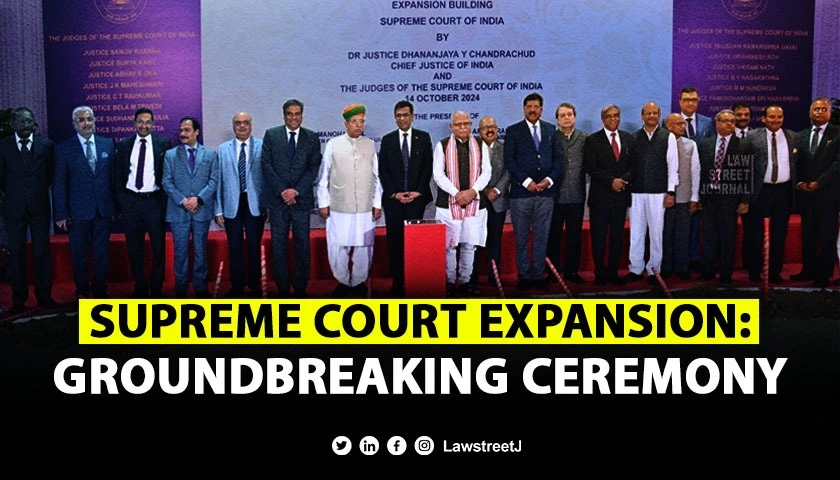New Delhi: In a notable advancement, the Supreme Court of India, situated on Tilak Marg, New Delhi, is set for a significant expansion. The groundbreaking ceremony for this extensive project was attended by Chief Justice of India (CJI) DY Chandrachud and Union Minister of State for Law and Justice with independent charge, Arjun Ram Meghwal, marking an important occasion.
Dignitaries Present at the Groundbreaking Ceremony
The event was also graced by sitting judges Justices Sanjiv Khanna, BR Gavai, Vikram Nath, BV Nagarathna, and former Supreme Court judge Justice Sanjay Kishan Kaul. Union Power and Housing Minister Manohar Lal was also present.
As part of the ceremony, the dignitaries symbolically used pickaxes at the site of the new building. The proceedings began with the recitation of verses from scriptures representing four major religions in India. Following the formalities, the CJI posed for photographs with the spouses of the Supreme Court judges.
Supreme Court Expansion Project Unveiled
The expansion, which will cover 86,000 square meters, will be carried out in two phases, as revealed by the CJI. The first phase, spanning 38,250 square meters, is expected to take around 29 months to complete. It will consist of two basement levels and a five-story building. The ground floor will provide essential amenities for lawyers, including a library, canteen, and offices for the Supreme Court Bar Association (SCBA) and the Supreme Court Advocates-on-Record Association (SCAORA). The upper floors will accommodate courtrooms, court offices, and chambers, with a special 17-judge bench on the fifth floor.
CJI Chandrachud’s Remarks on Timely Justice Delivery
The second phase, covering 48,250 square meters, will include three and four-story blocks, adding 29 more courtrooms along with additional court offices and chambers. “We are not just adding space but expanding to deliver justice timely,” remarked the CJI.
Focus on Sustainability and Accessibility
He also emphasized the project’s environmentally sustainable approach, including efficient site planning, indoor air quality control, and the use of locally sourced materials. Additionally, the CJI assured that the new structure would be inclusive, with features like automatic doors, adjustable furniture, and accessible restrooms for persons with disabilities.
“This expansion shall serve as a living entity like our Constitution adapting to the needs of society holding firm to core values such as justice, liberty, and equality. Today’s event signifies not only physical expansion but to see it is responsive to the growing needs of the nation,” the CJI said.

















